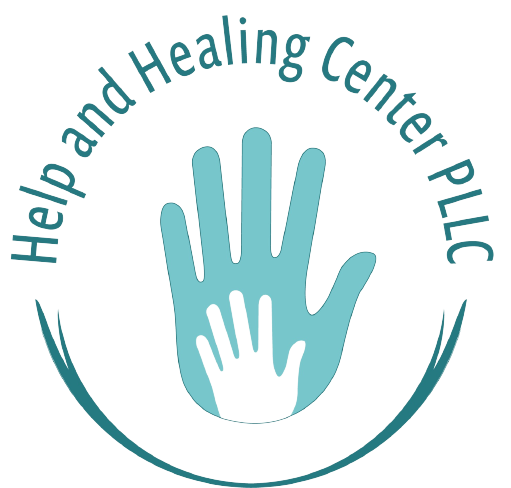What Actually Helps a PDAer Feel Safe? Understanding safety from a nervous system perspective
What Actually Helps a PDAer Feel Safe?
Understanding safety from a nervous system perspective. If you’ve ever supported someone with a PDA profile—or you are one—you’ve probably seen how quickly things can spiral when demands are involved. But what often gets overlooked is why PDAers respond the way they do.
At the heart of PDA, there is a nervous system reacting to a perceived lack of safety. So the real question becomes: What actually helps a PDAer feel safe? The answer might surprise you: it’s not just about reassurance or calm tones. For a PDAer, safety is deeply tied to autonomy, respect, and nervous system regulation.
It Starts with Autonomy
For most people, safety means being physically secure and emotionally supported. But for PDAers, safety also requires freedom. The freedom to choose, to say no, to have control over their body, schedule, and environment. When autonomy is threatened, even by something as small as a well-meaning suggestion, the nervous system may react as if it’s under attack.
Also Read: Understanding Masking: Helping Neurodiverse Kids Thrive
This is why so many traditional parenting strategies, school expectations, or therapeutic approaches fall flat, or even make things worse. If the PDAer doesn’t feel in control, the demand (no matter how minor it seems) can trigger a full-blown fight, flight, or freeze response. For children, I’ve seen PDA described as an overprotective guard dog in their brain—It is trying to protect the child from perceived dangers, but sometimes it might overreact to things.
Autonomy is not optional. It is a core need—a prerequisite for regulation and connection.
Co-Regulation > Compliance
When a PDAer becomes dysregulated, many people default to strategies that aim to “get them back on track.” But PDAers often don’t need redirection—they need co-regulation..
Co-regulation means offering calm presence and emotional attunement without trying to fix or control. It says, “I’m here. I’m not pushing. You’re safe with me, exactly as you are.”
That might look like:
- Sitting nearby without making demands
- Matching their energy in a playful way
- Using humor or imagination to shift the energy
- Backing off completely and returning when invited
For PDAers, the relationship is the intervention. Connection can open the door to regulation—but it has to come without pressure. No strings attached.
Respect Over Reassurance
Here’s something that surprises a lot of people: traditional reassurance doesn’t always help PDAers feel safe. Telling someone “It’s okay, just try it!” or “There’s nothing to be anxious about” can feel dismissive, even when it’s well-intended. It may increase the pressure to comply rather than reduce the sense of threat.
Instead, PDAers need respectful validation—an acknowledgment that their experience is real and their response makes sense, even if it’s different.
Try:
- “This feels like too much right now. I get that.”
- “You don’t have to explain. I’ll wait until it feels okay for you.”
- “What would help this feel more in your control?”
Respect invites collaboration. Reassurance often invites resistance.

It’s Not About Lowering Expectations. It’s About Shifting the Lens
Helping a PDAer feel safe doesn’t mean abandoning boundaries or giving up on goals. It means shifting how we approach them. It means prioritizing the relationship, honoring autonomy, and creating space for the nervous system to feel safe enough to engage.
Also Read: What Comes Next? Navigating Life After an Autism Diagnosis
When safety is present, cooperation can emerge organically. But it won’t be on your timeline—and that’s okay.

Final Thoughts
Whether you’re a PDAer yourself or someone who supports one, remember this: the goal isn’t compliance. It’s a connection. It’s a collaboration. It’s creating a world where autonomy and support can co-exist.
That’s what safety really looks like for a PDAer.
Need Professional Support?
Dr. Jessica Myszak, Dr. Jaime Long, and Dr. Aimee Rovane have significant experience performing psychological evaluations with children and adults. They offer both in-person and telehealth evaluations for children, teens, and adults looking for answers. In addition to seeing clients on the Chicago North Shore, they can work with families who reside in Alabama, Arizona, Arkansas, Colorado, Connecticut, Delaware, Florida, Georgia, Idaho, Illinois, Indiana, Kansas, Kentucky, Maine, Maryland, Michigan, Minnesota, Mississippi, Missouri, Nebraska, Nevada, New Hampshire, New Jersey, North Carolina, North Dakota, Ohio, Oklahoma, Pennsylvania, Rhode Island, South Carolina, Tennessee, Texas, Utah, Virginia, Washington, Washington DC, West Virginia, Wisconsin, and Wyoming! Dr. Long is also now available to see clients in California, and Dr. Myszak is available to see clients in New York. If you are interested in learning more about potentially working with them, you can visit their website here to initiate the process.

